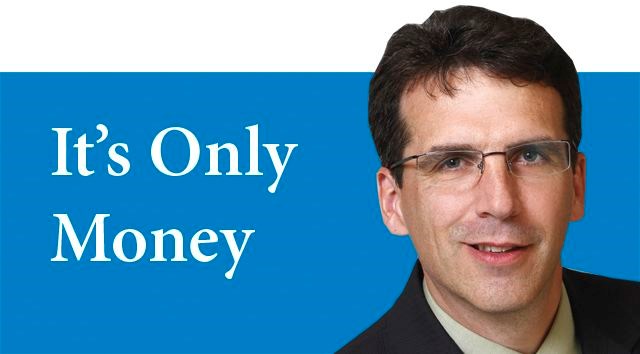To two North Americans with unforgettable hair:
It was a Tuesday morning after another tumultuous political weekend in Canada. And in his thick German accent, my professor, a brilliant economist, launched right into his lecture with something like this:
"Tonight you should all go home and write in your journals about this momentous occasion. This has been one of the great victories in the history of Canada. You need to tell your children about the importance of this day. I say this unequivocally, Canadians should be dancing in the streets with joy!"
These words were in stark contrast to the general feeling of the day on campus. The 1988 federal election had been bitter and divisive.
The chief opponent to the Canada U.S. free trade agreement was the leader of the Liberal party, John Turner, who predicted dire consequences if the trade agreement was ratified by electors.
During debates, he denounced Mulroney, who had already signed the agreement, as a traitor who had: "sold us out."
He continued: "We built a country east and west and north... on an infrastructure that deliberately resisted the continental pressure of the United States... With one signature of a pen, you've reversed that... and will reduce us, I am sure, to a colony of the United States..."
Turner so vociferously opposed the agreement that he threatened to "tear it up" if he became prime minister, even accusing progressives who voted NDP of being unpatriotic for splitting the anti-free-trade vote.
So, yes, the morning after the election, walking on to a left-leaning campus (aren't they all?) most students, and indeed most Canadians had voted for a party who was strictly opposed to the deal. But my professor was trying to convince us to celebrate it on no uncertain terms.
Although more than half of the country voted for anti-free-trade parties, the sky didn't fall.
Most families didn't notice the gradually rising economic tide, but rise it did. A few years after the election, NAFTA was negotiated, to barely a whisper from the once indignant opposition. And now, 25 years after NAFTA was signed, the U.S.-based Council on Foreign Relations notes that the deal: "... encouraged a more than tripling of regional trade and cross-border investment between the three countries."
Just as the U.S. was transitioning to the new administration in January, RBC published a useful NAFTA analysis (which I borrow from here), loaded with indisputable trade data, impossible to ignore, even if your comb-over gets in your eyes.
The new POTUS had described this deal as a "disaster."
Hmmm.
NAFTA accounted for close to 30 per cent of global trade in 2015. Yes. Thirty per cent of global trade.
About a third of the entire world's trade, right here - NAFTA. Dance in the streets.
America First
The push for protectionist policies and a subsequent renegotiation of NAFTA has, in part, been positioned as a means to stop the outflow of jobs from the U.S. It is hard to conceive how restricting trade flows between Canada and the U.S. would achieve this objective.
Thirty-five U.S. states have Canada as their top export destination with an additional six counting Canada as their second top trading partner. More than 70 per cent of exports from North Dakota land in Canada, followed by Maine (47 per cent), Michigan (44 per cent) and Ohio (40 per cent).
U.S. merchandise exports to Canada almost doubled over the NAFTA period and overall, trade between the two countries amounted to more than $662 billion US in 2015, or $55 billion per month.
Nearly nine million jobs in the U.S. are connected to the trading relationship with Canada. In California alone close to
1.2 million jobs depend on Canadian trade and investment. More than 600,000 jobs are reliant on the trade relationship with Canada in both New York (680,000) and Florida (620,000).
Today, our Liberal prime minister is by all accounts hoping against hope that he will be able to tiptoe through the tricky trade tulips and survive the renegotiations initiated by the new aggressive U.S. administration.
Gone are the voices crying in the wilderness about free trade ending Canadian sovereignty, disappearing borders and the end of Confederation as we know it.
Most of us are hoping to maintain what has proven to be an outstanding arrangement for both nations, with notable and inevitable exceptions.
And who might be the chief backroom consultant for the young prime minister when it comes to the U.S. file?
Fellow progressive Ed Broadbent? Ah, no.
Lifelong Liberal, John Turner? Negatory there, big fella.
The primary consultant to Trudeau II is none other than former Conservative prime minister Brian Mulroney, that wily fox of the 1988 deal that got us to this point. Paint that on your hockey puck and chew on it for a while.
Oh, and... uh... hey there Mr. Trudeau, got a minute for a special favour?
It's been a while since we had the Stanley Cup back in this country for a good long visit.
Right around the time NAFTA was first implemented it got up and went for a skate south of the border and has been AWOL ever since. Do you think you could smuggle it back home under your shirt - I mean, we assume you are planning to wear a shirt to the negotiations - and bring it home for us to play with?
Mark Ryan is an investment advisor with RBC Dominion Securities Inc. (Member-Canadian Investor Protection Fund). This article is for information purposes only. Please consult with a professional advisor before taking any action based on information in this article. Mark can be reached at mark.ryan@rbc.com.



